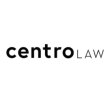Planning for the Future: A Guide to Estate Planning and Its Legal Aspects
Estate planning laws and regulations vary significantly by country and jurisdiction.

Estate planning refers to the process of arranging for the management and distribution of one's assets after their death. This includes creating a will, setting up trusts, and making decisions about end-of-life care.
Estate planning is essential for wealth owners who want to ensure that their assets are distributed according to their wishes and that their loved ones are taken care of.
International Scenarios
Estate planning laws and regulations vary significantly by country and jurisdiction. Thus it's essential to understand which rules apply to your estate and which country will have jurisdiction. Although residence is generally the decisive factor, some assets, such as foreign real estate, may trigger the jurisdiction of a foreign country.
You should know the laws, regulations, and processes that will apply to your estate in international scenarios. Furthermore, the residence of beneficiaries of your estate also needs to be considered since tax laws may treat them differently than those of your residence country.
Lifetime Giving
Lifetime giving, or the transfer of assets during a person's lifetime, can also be an essential aspect of estate planning. This can include gifting assets to loved ones, setting up trusts for their benefit, or making charitable donations.
Lifetime giving can be a tax-efficient way to transfer assets and help reduce the size of one's estate, which can reduce the amount of estate taxes owed.
Wills
One of the most important aspects of estate planning is creating a will. A will is a legal document outlining how a person's assets will be distributed after death. In a will, individuals can name beneficiaries, appoint an executor to manage their estate, and make provisions for minor children or other dependents.
Creating a will is especially important for individuals with complex estates or children from multiple marriages. Without a will, the laws of intestacy may determine the distribution of assets, which can result in unintended consequences.
Trusts
Trusts can complement wills to implement specific estate planning arrangements. A trust is a legal arrangement where a trustee holds and manages assets to benefit one or more beneficiaries.
Typically they are either revocable or irrevocable. With an irrevocable trust, you give up control over your assets and will not be able to dispose of them if your financial situation changes.
Trusts can be used to reduce estate taxes, protect assets from creditors, and provide asset management for beneficiaries who cannot manage them. Again, a thorough understanding of the trust itself and its consequences is crucial to implement your wishes.
Foundations
Foundations are typically governed by civil law and have their own legal personality, meaning they are treated as separate legal entities from their founders. Like trusts, foundations have their governing documents but a corporate governance structure with a foundation council responsible for managing the foundation's assets and carrying out its put.
Living Wills
A living will is a legal document outlining a person's end-of-life care wishes. It can include life support, pain management, and organ donation decisions. Living wills can help ensure an individual's wishes are respected and guide family members and healthcare providers during a difficult time.
Estate Taxes
Taxes are another consideration in estate planning, although they should not be the only driver. While reducing taxes to the extent possible, it's also essential to ensure that estate planning decisions align with your broader personal and family goals. Only proven and tested tax planning techniques should be considered to achieve certainty.
Tax laws may change over time, so regular reviews of estate plans are essential to ensure they remain up-to-date and effective. Furthermore, liquidity planning is another crucial aspect of settling estate taxes and avoiding tight liquidity situations.
Concrete Issues and Takeaways
One of the most critical takeaways from estate planning is the importance of starting early. It's never too early to begin considering estate planning and deciding how your assets will be distributed after your death.
It would be best to approach estate planning holistically and understand the details of the various estate planning and correlated law, regulations, and procedures.
Creating a will, setting up trusts and foundations, making decisions about end-of-life care, and engaging in lifetime giving are some of the necessary arrangements to consider.
Things will become more complex in international scenarios and require specific planning aligning various jurisdictions and legal frameworks. Depending on the assets and residence of beneficiaries, it may be necessary to combine estate planning tools to achieve a comprehensive arrangement.
Finally, it's essential to review and update your estate plan periodically. Life changes such as marriage, divorce, or the birth of a child can all impact your estate plan, and it's important to make updates as needed to ensure that your wishes are still being met.
About the Creator
Centro Law
An exhaustive and precise overview of your wealth is crucial for successful estate planning. All assets, from financial assets to luxury items, should be well listed to outline all sources of wealth and income.






Comments
There are no comments for this story
Be the first to respond and start the conversation.